How to Choose the Right Pontoon Boat Trailer for Your Needs
Selecting the appropriate pontoon boat trailer is crucial for ensuring the safety and efficiency of your boating experience. According to the National Marine Manufacturers Association (NMMA), the pontoon boat market continues to flourish, with sales increasing by approximately 10% year-over-year, making them a popular choice among boating enthusiasts. However, the importance of a reliable and compatible trailer cannot be overstated, as improper trailer selection can lead to significant logistical challenges and safety hazards while transporting your vessel. Industry reports indicate that more than 30% of boat accidents occur during trailering, highlighting the need for a well-suited pontoon boat trailer that not only matches the size and weight of your boat but also adheres to local towing regulations. Therefore, understanding the essential features and specifications of pontoon boat trailers is vital for maintaining the longevity of your boat and ensuring a smooth transition from water to land and vice versa.
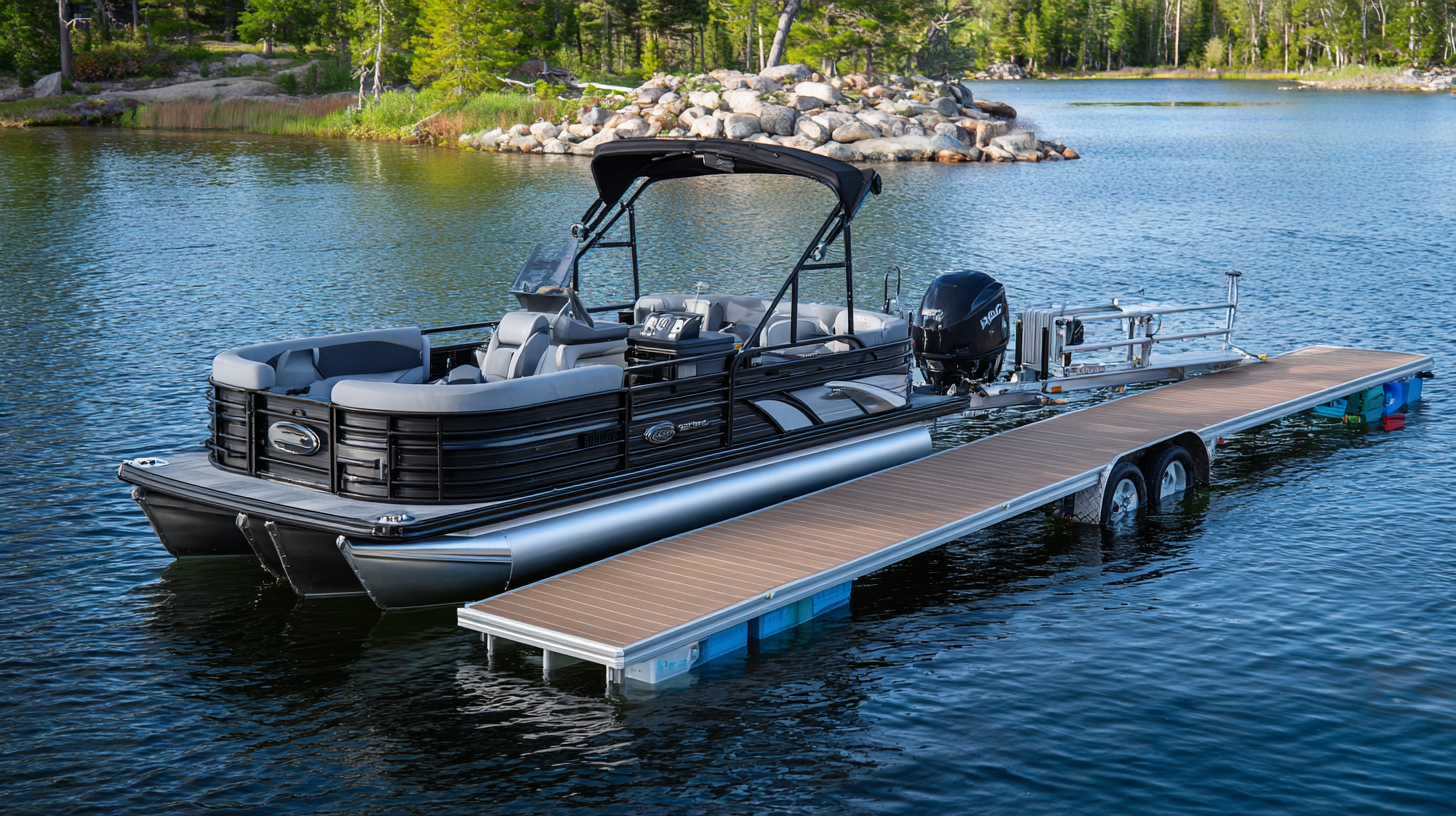
Understanding the Different Types of Pontoon Boat Trailers
When selecting a pontoon boat trailer, it's crucial to understand the different types available to ensure it meets your specific needs. The most common types include bunk trailers, roller trailers, and floating trailers. Bunk trailers offer a stable platform with padded bunks that support the boat's hull, making them ideal for larger pontoon boats. These trailers provide excellent security during transport but require a bit more effort when launching and retrieving the boat.
On the other hand, roller trailers are designed with a series of rollers that assist in loading and unloading the pontoon boat with minimal effort. They are particularly beneficial in shallow water conditions, enabling easy access without the need for deep ramps. Floating trailers, meanwhile, allow for the boat to be floated onto the trailer from the water, simplifying the process significantly. Understanding these options helps boat owners choose a trailer that enhances convenience and ensures safe transportation of their pontoon boats.
How to Choose the Right Pontoon Boat Trailer for Your Needs
| Trailer Type | Weight Capacity | Length Range | Features |
|---|---|---|---|
| Bunk Trailers | Up to 5,000 lbs | 16 - 28 feet | Stable support, Suitable for various watercraft |
| Roller Trailers | Up to 7,000 lbs | 18 - 30 feet | Easy loading and unloading, Ideal for low tide |
| Aluminum Trailers | Up to 5,500 lbs | 20 - 25 feet | Lightweight, Rust-resistant, Durable |
| Custom Trailers | Varies (Up to 10,000 lbs) | Custom sizes available | Tailored features based on specific needs |
| Tilt Trailers | Up to 6,000 lbs | 14 - 24 feet | Easy launch and retrieval, User-friendly |
Key Factors to Consider When Choosing a Trahiler Size
When selecting the right pontoon boat trailer, one of the most crucial factors to consider is the trailer size. A properly sized trailer ensures safe transportation and convenient loading and unloading of your boat. To determine the right size, you should measure the length and width of your pontoon boat, including any added accessories that may affect its dimensions. This will help you choose a trailer that not only fits your boat but also provides adequate stability on the road.
Additionally, consider the weight capacity of the trailer. It’s essential to select a trailer that can comfortably support your boat’s weight along with any gear and fuel. Ignoring this aspect can lead to safety hazards while towing. Researching the available options and understanding the specifications offered by different models will aid you in making a well-informed decision. Remember that choosing the right trailer size isn’t just about fitting your boat; it also plays a significant role in enhancing your overall boating experience.
Evaluating Weight Capacity and Loading Features for Your Pontoon
When choosing the right pontoon boat trailer, evaluating weight capacity is crucial. According to the National Marine Manufacturers Association (NMMA), pontoon boats typically range from 1,500 to 5,000 pounds, depending on size and design. Selecting a trailer that not only accommodates the weight of your pontoon but also offers a safety margin is essential. Ideally, your trailer should have a weight capacity that exceeds your boat's total weight, including any additional gear or accessories, to prevent overloading and ensure safe transport.
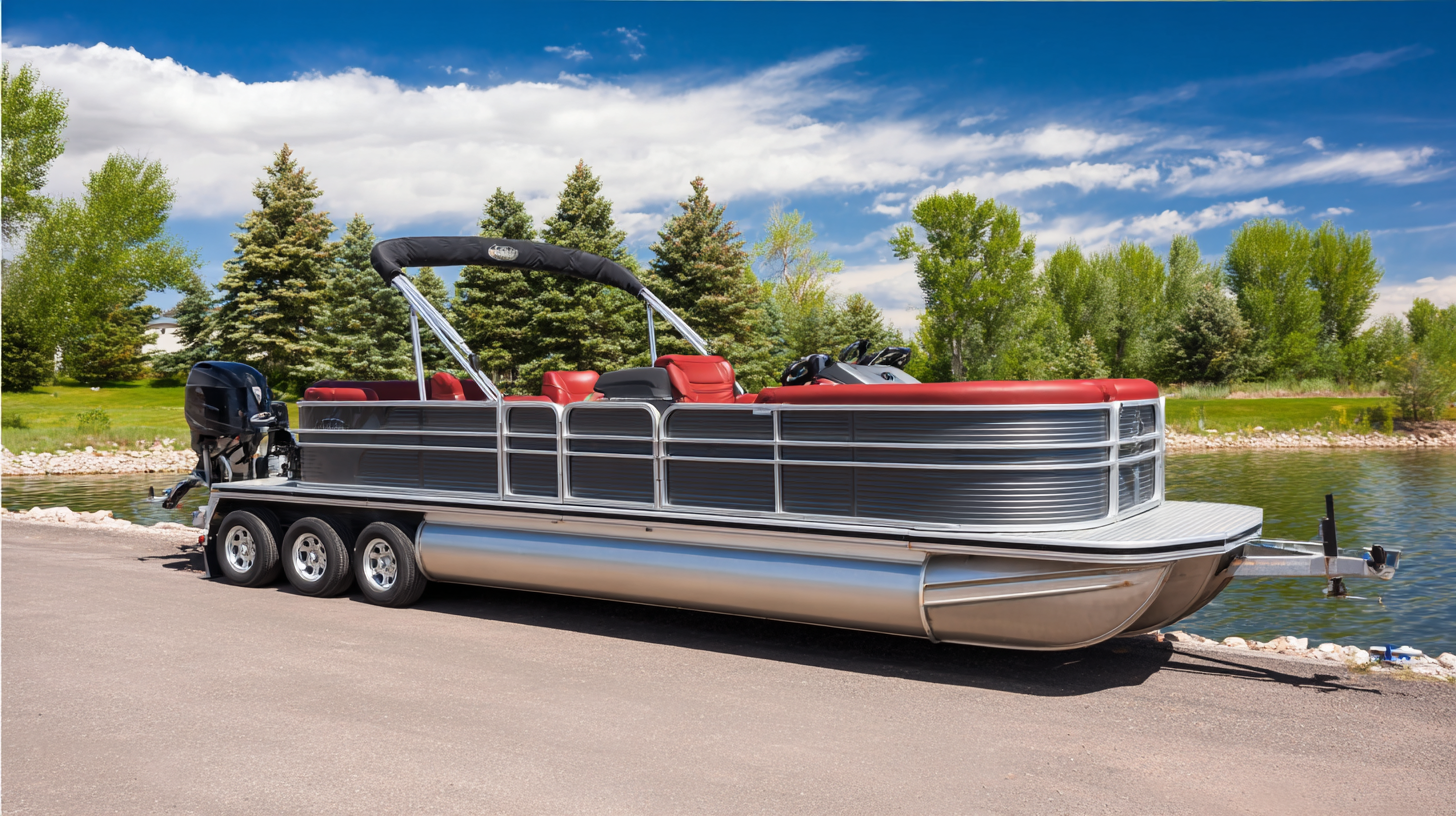
Additionally, loading features play a significant role in the overall usability of your trailer. Features such as roller bunks, adjustable frames, and guide poles can significantly ease the loading and unloading process. A report by BoatUS indicates that nearly 30% of boat owners struggle with loading their vessels due to improper trailer features. Therefore, ensuring your trailer is equipped with these conveniences can enhance both your experience and safety on the water. Evaluating the right combination of weight capacity and loading features will ultimately lead to a better and more enjoyable boating experience.
Exploring Trailer Materials and Their Impact on Longevity
When selecting a pontoon boat trailer, the material it's made from plays a crucial role in its longevity and performance. Common trailer materials include galvanized steel, aluminum, and even wood. Galvanized steel is a popular choice due to its durability and resistance to rust, making it suitable for saltwater environments. However, its weight can be a downside, particularly for those who prioritize easy towing. On the other hand, aluminum trailers are lightweight and resistant to corrosion, making them ideal for freshwater use and for those who plan to tow their boat frequently.
Tips: Consider how often you'll use your trailer and the environment it will be exposed to. For saltwater use, investing in a galvanized steel trailer may offer better longevity, while freshwater enthusiasts might appreciate the lightweight nature of aluminum trailers. Additionally, ensure that the trailer's material aligns with your budget—aluminum can be more expensive upfront but may save you on maintenance in the long run.
Another factor to consider is the type of finish on your trailer. A powder-coated finish can provide extra protection against scratches and environmental wear, extending the life of your trailer considerably. Always check the maintenance requirements based on the material you choose, as proper care can prevent premature deterioration.
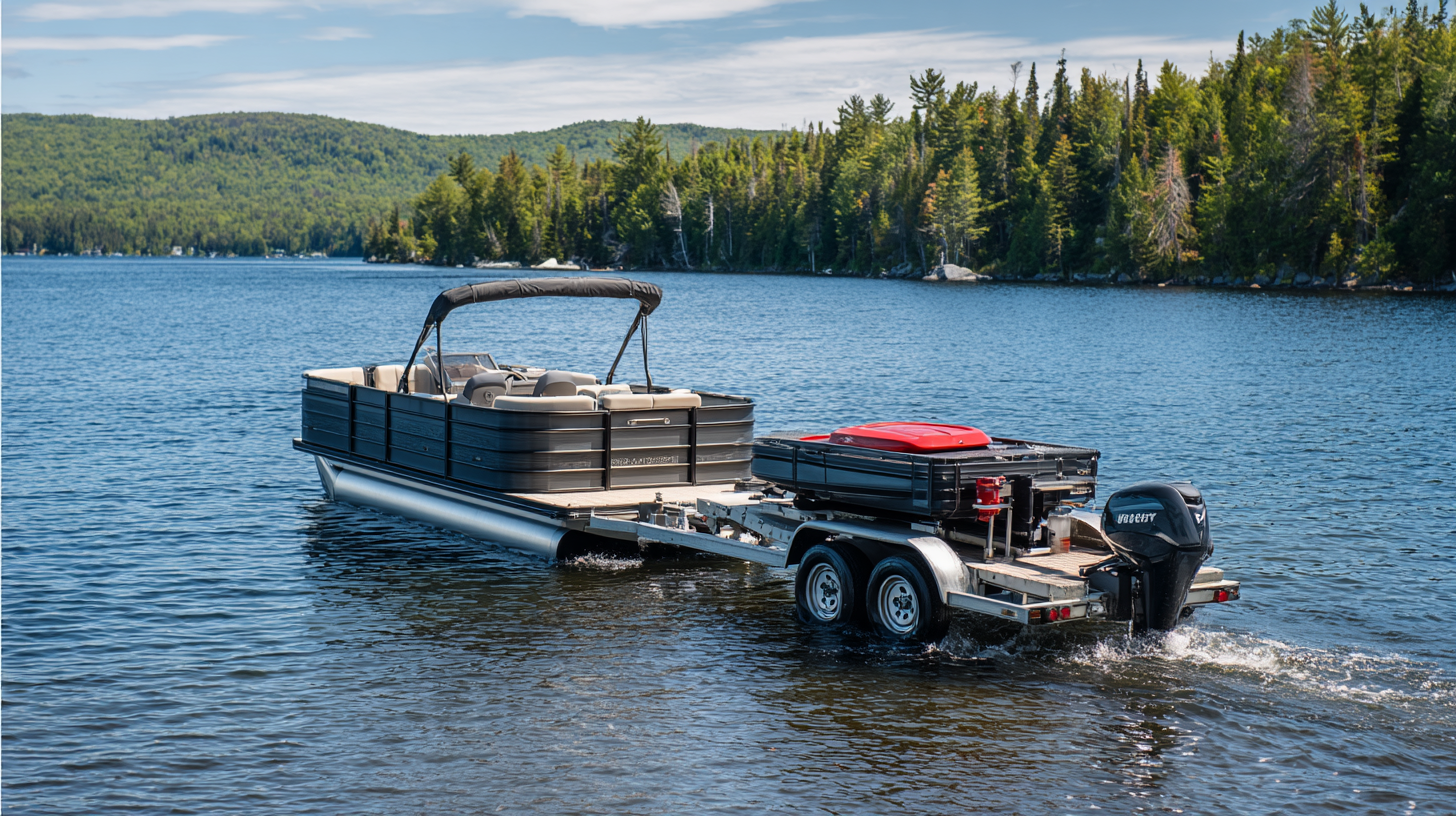
Assessing Trailer Features for Safe and Convenient Transportation
When choosing the right pontoon boat trailer, several features can greatly enhance both safety and convenience during transportation. Pay special attention to the trailer’s capacity to ensure it can adequately support your pontoon's size and weight. A trailer with a proper weight rating minimizes the risk of swaying and enhances stability on the road.
**Tips:** Always check the trailer's axle configuration. A tandem axle trailer offers better weight distribution and improved handling, especially when towing over long distances or on uneven surfaces.
Additionally, consider the braking system of the trailer. If you frequently travel over hilly terrain, a trailer with surge brakes can be invaluable, providing extra stopping power without requiring additional effort on your part.
**Tips:** Look for trailers with adjustable bunks or cradles, which can accommodate various pontoon designs. This feature ensures a snug fit and helps prevent damage during transit.
How to Choose the Right Pontoon Boat Trailer for Your Needs
This chart illustrates the key features to consider when selecting a pontoon boat trailer, based on user preferences. The data represents the percentage of importance users assign to each feature.
Related Posts
-

Advantages of Choosing a Quality Pontoon Boat Trailer for Your Water Adventures
-

2025 Tech Innovations in Trailer Axles: Essential Strategies for Staying Ahead in the Industry
-
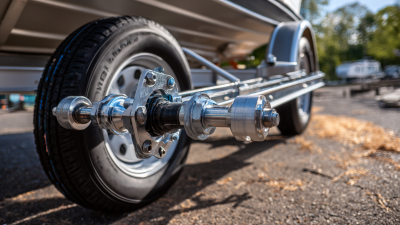
7 Best Tips for Choosing the Right Boat Trailer Axle
-
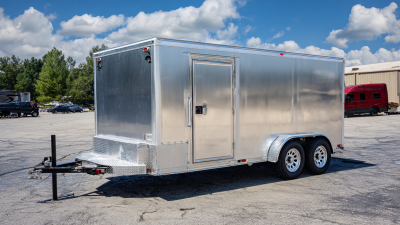
Unlocking Advantages: Why the Best Aluminum Trailers Lead the Market in Durability and Performance
-

Unlocking the Advantages of Trailer Accessories for Enhanced Safety and Efficiency
-
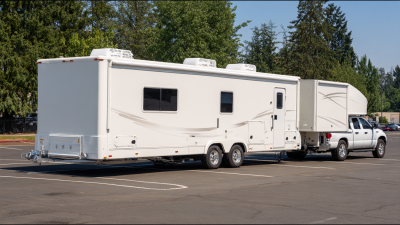
How to Choose the Best Trailer Accessories for Your Hauling Needs
